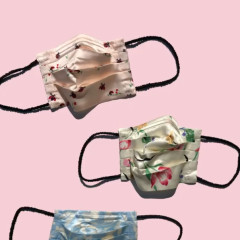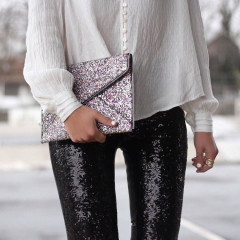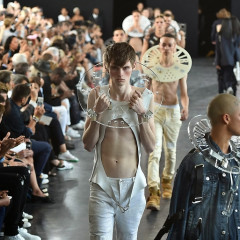
We've seen it all in the past two months as discussions about race have taken a rightful place in the center of our consciousness: call outs, "cancellations," promises to listen and learn and "do better" from brands, publications, and people with influence. Apologies are one thing - enough to save face - but they can only go so far without real action. After the promises are made, who will make sure they're being kept? Well, that's where the Black in Fashion Council comes in.
Launched by Teen Vogue Editor-in-Chief Lindsay Peoples Wagner and public relations specialist Sandrine Charles, the Black in Fashion Council aims to move beyond "cancel culture" and ask industry leaders to really rise to the occasion in order to bring about sustainable change and actual inclusivity within a business that for too long has gone without any accountability. In 2018, Peoples Wagner wrote the seminal report "What It’s Really Like To Be Black In Fashion," for The Cut. Nearly two years later, it appears not much has improved.
"Lindsay and I came together to form the council after noticing a void in strategic long term planning for change," says Charles. "Through consulting with our peers who have shifted into the Executive Board Members and members of the Black in Fashion Council, we were able to create a strategic three-year plan to collectively collaborate with brands and companies to establish change."
.png)
Their mission? To make sure Black voices have influence throughout the industry, from positions at the junior level to seats in the C-suite. "As an industry, we cannot continue to claim that we are progressive if we are not working to force diversity and inclusion in corporate structures while rectifying systemically racist policies that have permeated our industry for hundreds of years."
Through commitment pledges which will see industry stakeholders working with the council's executive board on implementable initiatives based on the pillars of Human Resources, Talent Inclusion, Support, and Corporate Spend, companies have the opportunity to back their promises up with action. And to hold them accountable, the Black in Fashion Council will issue an equality index score, which will act as a yearly public report card on their progress.
But in addition to the outward-facing role of working with non-Black brands and entities to make sure they do better, the council is also building a strong community of Black individuals in the industry. With over 400 members already, and an advisory board listing fashion world notables like June Ambrose, Veronica Webb, and the recently-appointed EIC of Harper's Bazaar, Samira Nasr, the council plans to have regular town hall meetings, events, and mentorship programs, along with a digital directory of hireable talent. "By organizing a resilient group of editors, models, stylists, media executives, assistants, freelance creatives, and industry stakeholders, we aim to build a new foundation for inclusivity."
By this time next year, the fashion industry should already be well on its way.
[Photo: Lindsay Peoples Wagner, Sandrine Charles]


.jpg)
.jpg)



.jpg)
.jpg)
.jpg)

.png)


